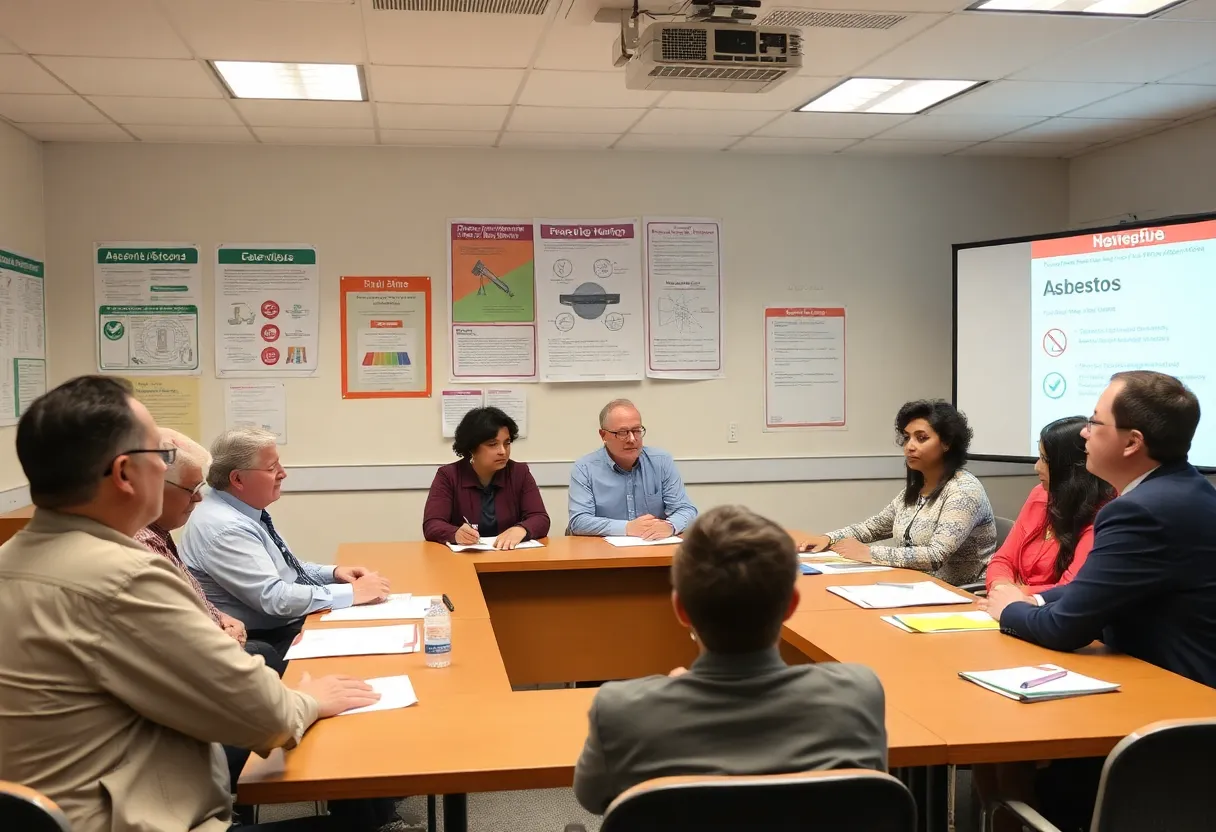News Summary
The Philadelphia School Board has approved a deferred prosecution agreement concerning asbestos while evaluating charter schools based on academic performance.
Philadelphia School Board Takes Bold Steps Regarding Asbestos and Charter Schools
The Philadelphia School Board convened for a lengthy five-hour meeting on a Thursday evening, tackling crucial issues concerning charter schools and the pressing need for better facilities management. Central to the discussions was the unanimous approval of a deferred prosecution agreement with the U.S. Department of Justice, a historic move as it marks the first time a school district has faced criminal charges over environmental violations concerning asbestos management within its school buildings.
Asbestos Management: A Turning Point
The approval of this agreement reflects a serious commitment by the school board to safeguard the health of students and staff. With asbestos still posing significant risks in older school facilities, this step opens a new chapter in accountability for public education institutions. It underscores the need for stricter adherence to safety protocols in managing hazardous materials and highlights the ongoing issues surrounding environmental safety in schools.
Charter Schools Under the Microscope
In addition to the asbestos discussion, the board scrutinized the future of six charter schools. Proposals for nonrenewal were directed specifically at KIPP North Philadelphia and People for People Charter School, reflecting concerns over low academic performance, with KIPP scoring only 23% on academic metrics and People for People achieving a mere 29%.
Further evaluations revealed that Russell Byers Charter School and Mastery Douglass also faced critical assessments, scoring 41% and showing missed targets respectively. However, Mastery Douglass received a recommendation for a five-year renewal contingent upon improvement, representing a cautious approach to underperforming schools. Meanwhile, sturdy discussions were anticipated for KIPP Philadelphia, which managed to score 41% but will review a one-year charter renewal with conditions.
Community Engagement: A Data-Driven Approach
The board faced significant pushback from the community regarding its wellness policy, particularly concerns over student access to essential facilities like bathrooms and water. Recognizing the high volume of public feedback, members acknowledged that community engagement is crucial, particularly in planning discussions regarding potential school closures and repurposing of facilities.
To reinforce community ties, the district intends to host sessions to allow for public input on facilities planning. There are aspirations to consolidate grade spans from thirteen to six, a move aimed at improving academic performance and ensuring an increased presence of qualified teachers.
Public Sentiment: The Voice of the Community
Throughout the meeting, testimonies emerged from parents and community members advocating for various charter schools. They emphasized the positive impact these institutions have made within their communities and the transformative educational experiences they provide. However, board members expressed frustration over the inconsistent academic performance of charters, leading to heated discussions about accountability standards.
Calls for Reform: Looking Towards the Future
The board’s considerations on charter school renewals are not final, requiring further formal votes in future meetings. Members have underscored the urgency for educational reform, particularly given historical performance disparities among charter schools. Addressing these issues is vital for ensuring equitable educational opportunities across geographic divides.
In a celebration of achievement, the board took time to recognize student achievers, including seniors of the month and the teacher of the month, reaffirming its commitment to fostering a positive educational environment amidst ongoing challenges.
Final Thoughts
With a focus on improving accountability, safety, and academic outcomes, the Philadelphia School Board’s decisions resonate beyond mere policy; they signal a transformative effort to reshape public education in the city. The critical discussions surrounding charter renewals and environmental safety are just the beginning of a much-needed reform journey in Philadelphia’s educational landscape.
Deeper Dive: News & Info About This Topic
HERE Resources
Philadelphia School District Faces Historic Criminal Charges Over Asbestos Violations
The Philadelphia School Board’s Historic 5-Hour Meeting Packed with Crucial Decisions
Philadelphia School District Charged in Groundbreaking Asbestos Case
Chrysotile Asbestos Ban Under Review: A Risky Rethink?
Major Legal Victory in Asbestos Case: $17.2 Million Verdict Against Georgia-Pacific
The Ongoing Battle Over Asbestos: EPA’s New Moves Cast Doubts
The Looming Shadow of Asbestos: Health Risks and Regulatory Challenges
Chrysotile Asbestos Ban Faces Uncertain Future Under Trump Administration
New Study Reveals Asbestos Exposure Thresholds Linked to Mesothelioma Risk
Philadelphia School District Enters Asbestos Management Agreement to Avoid Prosecution
Additional Resources
- Inquirer: Philadelphia School Board on Asbestos and Charters
- Wikipedia: Philadelphia School District
- Inquirer: Philadelphia Charter Schools Renewal
- Google Search: Philadelphia School District
- Audacy: School Board Considers Charters
- Google Scholar: Philadelphia Charter Schools
- Audacy: Universal Vare Charter School Update
- Encyclopedia Britannica: Charter School



















